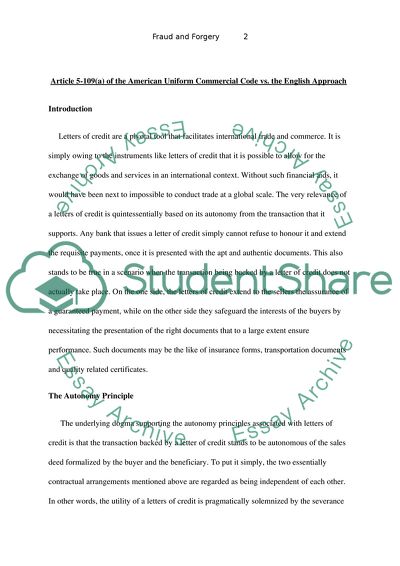Compare Article 5-109 (a) of the ( Amercian) Uniform Commercial Code Essay - 1. Retrieved from https://studentshare.org/miscellaneous/1576617-compare-article-5-109-a-of-the-amercian-uniform-commercial-code-with-the-approach-under-english-the-full-question-is-in-the-attachment
Compare Article 5-109 (a) of the ( Amercian) Uniform Commercial Code Essay - 1. https://studentshare.org/miscellaneous/1576617-compare-article-5-109-a-of-the-amercian-uniform-commercial-code-with-the-approach-under-english-the-full-question-is-in-the-attachment.


